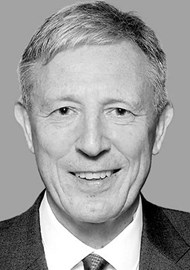I do not like to cut and paste too much but to do so is a confirmation of fact: I am cutting extracts from the Reasons for Sentencing (HCCC 200/2018).
Para 60: “I consider the following to be aggravating factors. Before the commencement of the surgery the defendant anticipated that Lee’s respiratory condition could be compromised. At the beginning of the surgery at 1109 hours the defendant said:-
“Get the airway out just in case… She’s the kind who can’t breathe. I’m worried she will get tired when she’s asleep.”
Despite her expectation, the defendant did not ensure optimisation of Lee’s airway or provide her with oxygen during the procedure. Lee’s airway and oxygenation were not established or maintained. The airway was not used and no supplementary oxygen was administered.”
Copied in full because it is difficult to express how messed up this whole process has been. The Judge is guilty of a most grievous abuse of the English language. In the first paragraph she used the word, correctly in the circumstances, “could”. It is a conditional in this context. That is to say, a possibility is raised and indeed action was taken, an airway was placed in reach. The transcribed comments of Dr Kwan were indeed prescient: Note it was “Just in case” but she had identified something about the patient that made her observe that the patient may get tired when she was asleep and that might lead to problems with her breathing.
The reason I find this interesting is that we just do not have information about the level of consciousness of the patient as the intravenous sedation was turned off. At what stage do you have a rising level of consciousness because a pharmaceutical product is no longer suppressing consciousness but a falling level of consciousness which is the result of chronic fatigue. The fatigue that only a young mother can know. By young mother I am not referring to the age of the mother but the age of the infant. In this tragic case, nine months old.
The next paragraph written by the Judge is painful to dissect. There was no “expectation”. And please explain what you mean by “optimisation”? I guarantee, you do not know. And this obsession with oxygen. A three-hour procedure and you state that the patient was hypoxic throughout as evidenced by a continuously alarming monitor. And you confirm no supplemental oxygen was given. So, tell us about hypoxia? Actually, tell us about hypoxic hypoxia. What are the signs and symptoms? At what stage does irreversible damage occur? I ask this because we have established that the drugs were not at sufficient levels to cause any sedation so what did cause the damage? What led to a fatal loss of consciousness half an hour after the sedation had been stopped? Follow the colour of the skin always, pale until the emergency services arrived.
The Judge just cannot say, “Lee’s airway and oxygenation were not established or maintained”. This is nonsensical from the perspective of a person trained in medicine. Even more senseless from a person who is not. If Lee’s airway was not established and maintained, how did Lee survive a three-hour operation, albeit in the prone position and without developing any signs of cyanosis?
It is difficult to be patient with the distortion of facts para 62: “The Mindray machine was alarming throughout the procedure.” It was not, was it? But the Judge cannot resist in picking up the righteous indignation muted by Dr Phoebe Mainland. “Her actions of silencing the alarm and ignoring it was shocking.” Come on, when you are putting down for posterity the reasons that you are incarcerating another human being for six years, pay a little more attention to your editing. There were two actions, but this is not reflected in the verbal construction. Sloppy.
Para 63. My role is not to defend Dr Kwan but to ensure that we are understanding as best we can what happened and why. The statement by the Judge: “Appallingly, the defendant left Lee in the hands of medically untrained assistants when she knew that Lee was sedated and not awake or conscious.” I have picked out three words, “…when she knew…” Did she know or did she make an error of judgement by making clinical assumptions?
This to me is an incredibly important point and one that we can appreciate in the uncertainties of medicine. It is the false certitude of the Law that is the problem (to be cont.)




